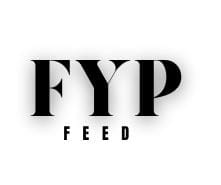Boundaries, Beliefs, and the Law: When Public Moments Spark Bigger Conversations
By [Author Name], BBC Features
28 August 2025
Introduction
The sport of sports is always about more than playing. From boxing weigh-ins, to Champions League finals, the spotlight is often on events that go beyond the game itself. These spontaneous events–sometimes embarrassing and sometimes deeply personal–show many aspects of human behavior, respect and the legal and ethical boundaries that define the public sphere.
Two distinct moments from 2025 show this clearly. In June, the bare-knuckle wrestler Mariya Agapova wowed the crowd by kissing the opponent Jessica Eye during a tense weigh-in. In the previous week during the Champions League final in Munich the the former UFC champion Khabib Nurmagomedov politely turned down the handshake offered by the broadcaster Kate Abdo due to his religional beliefs.
On first look, the tales might appear to be simple viral videos. But they also raise important questions regarding the concept of consent to be a part of the culture, norms, along with the legal system. To better understand these issues it is important to study certain of the most important ethical and legal principles that govern human interactions.




The Language of the Law
Legal systems around the world depend on precise terminology to define justice. For both professionals and students the ability to comprehend these terms is crucial. Here are a few of the most crucial terms, explained in simple terms:
- Plaintiff and defendant A plaintiff can be described as the one who brings a case before a court, whereas the defendant is the one who is facing legal action or being sued. These roles are the basis for any dispute in law.
- Respondent and Appellant: During appeals, the loser is referred to as an appeals court (seeking review) and the respondent defends the previous decision.
- Jurisdiction is the authority of a court to decide an issue. If a court is not able to exercise jurisdiction, the court ruling does not have legal force.
- Habeas Corpus: Latin for “produce the body.” As a safeguard against illegal detention, it guarantees that individuals cannot be detained without due procedure.
- Mens Rea and Actus Reus: The “guilty mind” (intent) and “guilty act” (action). Both are usually necessary for the establishment of a criminal offense.
- Prima Facie: On first inspection the case seems solid enough to be able to stand in the event of a contradiction.
- Ratio Decidendi and Obiter Dicta Ratio Decidendi is the legally binding reasoning for a ruling. Obiter dicta refers to the opinions of the judge that are persuasive, but not legally binding.
- Injunction A court or other authority to cease doing something. In cases of harassment, it is common as well as intellectual property or environmental protection.
- Damages Compensation in money for damage or loss.
- Precedent: A past decision guiding future rulings. This ensures uniformity in the law.
Together, these concepts are a reflection of a bigger concept: law seeks to ensure that individual rights are balanced with general norms, and prevent harm, while also allowing freedom. Recent sports events are between these principles.
Case One: The Bare-Knuckle Kiss
On June 28, 2025, spectators at the official weigh-in ceremony for BKFC 76 were treated to an unusual moment. Mariya Agapova, a 27-year-old fighter from Kazakhstan she leaned toward her opponent and kissed Jessica Eye directly on the lips during their match-up.
This gesture wasn’t well received. Eye the veteran, who is 38 years old and an ex- UFC title challenger, instantly began to shiver and pushed Agapova away. Eye’s response was simple: “That’s so weird. This is so bizarre.”
Videos of the moment resurfaced quickly online. Some people dismissed the video in terms of “cringe” or “awkward.” Others questioned issues of consent asking whether this behavior had an appropriate place in sports.
Legal and Ethical Lens
From a legal point of view From a legal point of view, the concept in legal terms, the concept of consent is a key element in law. In the criminal law, unwelcome physical contact, including kisses, may be considered to be assault in certain areas. Although fighters frequently engage in psychological tactics during weigh-ins, the line between arousal and unintentional intimacy is a thin line.
Reactions of Eye and the online community is a clear example of how fast a behaviour that is perceived as a snub can harm reputations. For Agapova who was already suffering from an unbeaten losing streak of six matches this incident was a risk of obscuring her athletic career.
Broader Lesson
The case highlights the importance of observing the boundaries of one’s own. In sports or at work, or in social environments, actions that do not respect consent can undermine trust and result in legal consequences.
Case Two: Khabib and the Handshake
A few weeks earlier the 1st of June 2025, an entirely different type of viral moment took place. On the live stream from the Champions League Final in Munich the presenter Kate Abdo extended her hand in greeting Khabib Nurmagomedov. Khabib, the ex- UFC lightweight champion who is widely known for his undefeated record as well as his an ardent Islamic faith, greeted her warmly but he declined, putting his hands upon his chest instead.
This gesture is subtle, but evident. Many viewers initially saw this as rudeness. In the following hours, however the meaning was clear that in Sunni Islam, many adherents do not engage in physical contact with people of opposite sexes.
Abdo an experienced broadcaster, quickly threw out any awkwardness, apologized, and then moving on smoothly. Khabib has since clarified the decision was in line with his religious convictions and not personal disrespect.
Cultural and Legal Lens
In contrast to the kiss with bare-knuckles Khabib’s gesture was purely about the religious boundaries. Legally, everyone has the right to the right to choose their religion in the majority of international conventions and constitutions. The refusal to shake hands, thus is a matter of personal rights.
The key is to communicate. By smiling and putting his hands on his chest–a gesture of respect — Khabib avoided offense and remained true to his beliefs. Abdo’s professional approach showed sensitivity to culture.
Broader Lesson
This case demonstrates how important it is to taking care to respect diversity. In multi-cultural societies, understanding the cultural and religious practices of a society is not only polite, it is crucial to ensure acceptance.
Comparing the Two Incidents
When viewed side-by-side these two events create a striking contrast
- “Agapova’s Kiss” is an example of crossing boundaries with no consent.
- Khabib’s defiance was a sign of keeping boundaries in faith.
One was a source of discomfort because it entangled while the other caused a ruckus by omitting. In both instances, the reaction of everyone around shows how much attention to detail is paid to behaviour in public view.
The thing that binds them is the notion that respect is a virtue: the respect of one’s personal space and the respect of cultural standards in addition to respect for law.
Why These Moments Matter
They may seem insignificant however they are part of bigger debates:
- Consent within Everyday Life: From relationships to work Consent remains the cornerstone of ethical communication. The bare-knuckle case illustrates how even jolly gestures can be a source of conflict.
- The Freedom of Belief: In the global world, events like Khabib’s handshake rejection make us aware that the diversity of daily life is a common occurrence. Laws that protect the right to freedom of religion make sure that these that differences are able to be peacefully coexist.
- law as framework Terms such as an injunction, damages or precedent may seem distant however, they are there to resolve disputes in cases where respect isn’t enough.
Conclusion
The law can appear to be things that are not real but the truth is that it is integrated into everyday interactions. It doesn’t matter if a fighter who kisses her opponent or a champion refusing to give the offer of a handshake, these social instances remind us of how much is dependent the respect of boundaries and the context.
For students who are studying for legal exams, examples like these help make the idea real. Mens Rea and Actus the reus, plaintiff and defendant–all become real as we observe how quickly an act can change from awkward to unconstitutional or even from being misunderstood to elegant.
In the end, the conclusion is straightforward yet fundamental: the law protects respect, and respect is the lifeblood of the society. As long as humans continue to gather in courts, stadiums and more, these values remain as essential as the events and sports that unite us.
















